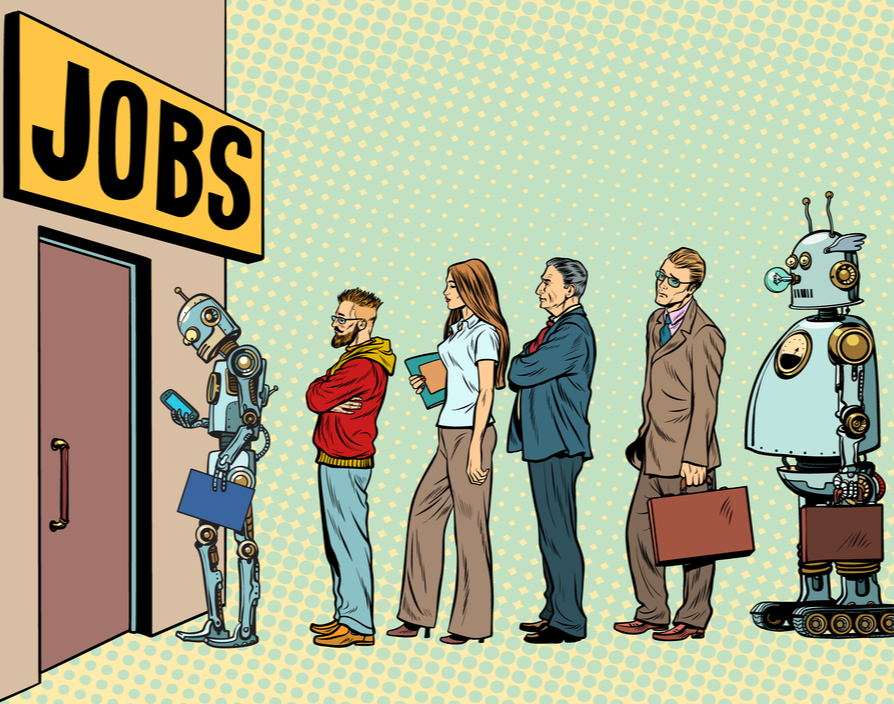Artificial intelligence (AI) is already disrupting every sector – from health and automobiles to food delivery and even sex – every industry is being automated. Looking at how robots and virtual assistants are doing mundane jobs in half the time taken by humans, it’s easy to see how startups have started to incorporate it into their business models. With the influence of Blade Runner and Her, robot and human relationships has become a concept entrepreneurs have begun to get accustomed to.
The numbers are proof of that. According to a report released by The Knowledge Academy, the training company, people are increasingly feeling more comfortable working with robots. In a survey of 1,000 UK professionals, 65% admitted to being willing to work alongside robotic technology.
But is it a good thing and should entrepreneurs actively include machines in the office? “Innovative technology solutions are clearly the way forward,” said Gianluca Bisceglie, founder of Visyond, the cloud-based spreadsheet software, when speaking with Elite Business. “Imagine if two companies can afford the same number of employees and budgets. What if one can achieve more from what they have thanks to tech allowing them to be two or three times more productive? It’s obvious who will win. One thing [I’m] sure of is that AI and automation is the way forward when it comes to boosting productivity and therefore having the edge over the competition.”
It’s hence inevitable for startup owners to invest more money in tech. And looking at the ubiquity of companies utilising deep tech, it’s unsurprising to see that UK businesses have pumped $12bn in AI in 2018, according to report by OC&C, the strategy consultants. In fact, according to Gilles Boisselet, chief strategy officer at UNIT9, the creative agency. He believes AI can prove to be more efficient than human employees in many instances. “AI works 24/7, never takes a sick day and never asks for holiday,” he told Elite Business. “So, if there’s scope for AI to extend your SME’s offering, integrating it is a competitive way to extend working hours.”
Additionally, apart from robots assisting in the everyday repetitive tasks, they also prove to be more economical in the long-run. “Used correctly, AI can empower a startup owner to focus on what [they’re] good at and have set out to do, rather than wasting time on smaller tasks,” Joanna Swash, global CEO of Moneypenny, the telephone answering service provider, told Elite Business. Indeed, today there are a plethora of methods where AI is being used by startups to make small tasks easier. For instance, MailChimp’s predictive tool uses AI to learn when is the optimum time to send emails. There is also digital assistant service X.ai which carries out tasks just like a human PA would. This way employees can focus on planning while the machines do the execution. “The role of technology is to enhance service rather than replacing it and by using AI for answering FAQs and managing simple but time-consuming tasks, it means people can focus on the queries and challenges that are too complex for machines,” Swash adds.
While tech enthusiasts are increasingly embracing the virtual world and robots to do most jobs, these man-made machines still need to be monitored. “No matter how good tech is, you can’t program common sense,” Swash continued. “[You’ll] always need human intuition to be at the heart of AI to get the best results and by bringing that blend together businesses can increasingly benefit from the efficiency of technological advances without impacting on customer service quality.”
Swash is hardly alone to warn entrepreneurs of relying too much on AI technology. Given robots can execute technical activities, the power of decision-making must reign with the human. “For most businesses, AI can help with workflow, suggesting who should have what permission levels based on past actions and assigned projects,” Bisceglie added. “But, could the use of AI, in spreadsheets for example, help businesses make better decisions? Only if it could be trained to human-level understanding, ethics, business sense and awareness – which cannot be programmed.”
Seemingly, the fear that technology will replace humans in workplaces has been around for a long time – no doubt made it’s way into the forefront of people’s minds with people like Space X and Tesla founder Elon Musk constantly raising his dread of a Skynet-like rise of the machines – and AI does have the potential to take over many complicated processes in the foreseeable future. “Smarter automation are part of a new industrial revolution that will see us make a quantum leap towards a fresh era,” Bisceglie concludes. “Not embracing these technology solutions is not an option.”
The advent of technology and robots has proved to be a boon for businesses and it seems as though the day when the workplace is completely run by machines and looks like a scene from Transformers is just a few years away. And we’re sure to say that it’s the only way to scale your startup. ![]()
Share via:








































